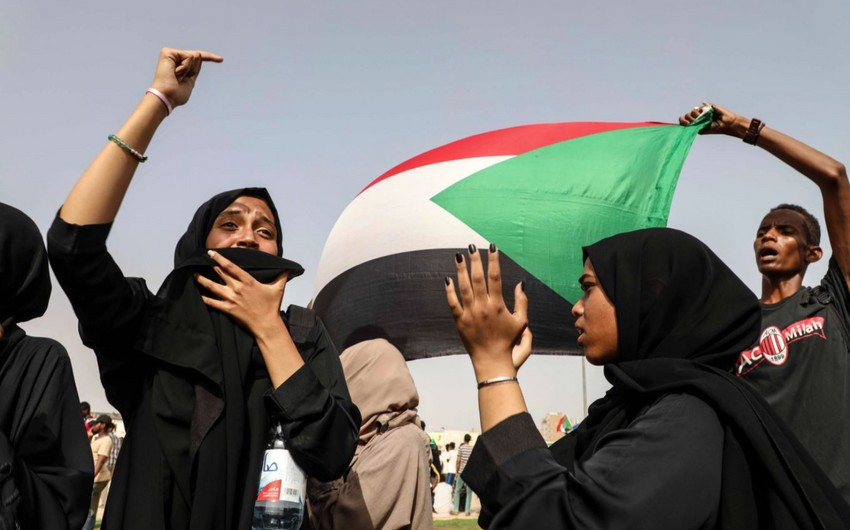The death toll in Sudan from anti-coup protests since last month's military takeover has risen to at least 40, medics said Saturday after a teenager shot in the head days earlier died, Report informs via .
Sudan's top general Abdel Fattah al-Burhan declared a state of emergency on October 25, ousted the government, and detained the civilian leadership.
The military takeover upended a two-year transition to civilian rule, drew wide international condemnation and punitive measures, and provoked people to take to the streets.
Protests on Wednesday provoked the deadliest day so far, with the toll of those killed now standing at 16, according to medics.
"One martyr passed away... after he succumbed to severe wounds after being hit by live rounds to the head and the leg on November 17," the independent Central Committee of Sudanese Doctors said. He was aged 16, it added.
Medics said most of those killed on Wednesday were in North Khartoum, which lies across the Nile river from the capital.
Police officials deny using any live ammunition and insist they have used "minimum force" to disperse the protests. They have recorded only one death among demonstrators in North Khartoum.
On Friday, small groups of protesters rallied in several neighborhoods after prayers against the military coup, especially in North Khartoum, where people were seen building barricades across the roads. Security forces sporadically fired teargas to disperse them.
The Sudanese Professionals Association (SPA) has urged protesters to keep up their campaign, reporting Friday that security forces had "stormed homes and mosques" in North Khartoum.
The SPA is an umbrella of unions which were instrumental in the months-long demonstrations that ousted president Omar al-Bashir in April 2019.
Sudan has a long history of military coups, enjoying only rare interludes of democratic rule since independence in 1956.


 https://static.report.az/photo/ca3514ad-a3c1-3134-8768-7a84662968e1.jpg
https://static.report.az/photo/ca3514ad-a3c1-3134-8768-7a84662968e1.jpg

